
The summer of 2011 was an unexpectedly crucial period for comic book movies. Four films were debuting with less-than-well-known characters that would define their respective studios and franchises to come. The end result was that Thor and Captain America: The First Avenger established Marvel as a major player beyond the Iron Man series, X-Men: First Class suggested there was life beyond fan-favorite Wolverine, and Green Lantern cemented that Warner Bros. had no idea what to do with their properties. A year later, Sony restarted The Amazing Spider-Man and Disney changed the game with The Avengers, the biggest dominoes to fall in these studios' ever-evolving superhero franchise plans.
2014 looks like a similar summer, cementing this as a crucial period for the evolution of these movies as consistent studio moneymakers. The Amazing Spider-Man 2 continues Sony's efforts to distance themselves from the Raimi films, X-Men: Days Of Future Past is the first step in Fox's next stage of X-films, and Marvel is moving outside the box with Guardians Of The Galaxy. The coming years have a full 10 (!) more superhero films scheduled for release, with countless others to follow, just waiting for a schedule space to clear up. But what happens if these films don't work? What happens if the fans don't want to see certain characters again and again?
Here's a look at the six major onscreen superhero universes and what's at stake for each.
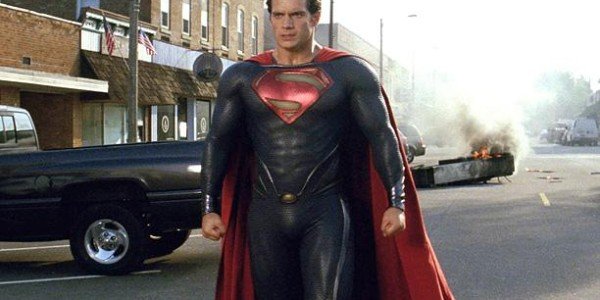
Superman and Batman
Franchise History: This current series of interconnected DC Comics films has but one film: Zack Snyder's Man Of Steel, which grossed $668 million last year. But there may be some audience identification with the very-recent Dark Knight films, which have no bearing on this mythology. That trilogy pulled in a little less than $2.5 billion.
Last Time Out: Man Of Steel batted back some lukewarm reviews and audience notices to register a tally higher than any film featuring either the X-Men, the Fantastic Four or even Thor.
Current Entry: Warner Bros. doesn't have the advantage shared by the Marvel movies: they can really only put out one film at a time, and lately with only their two core heroes. Which is why they're banking heavily on a Man Of Steel follow-up for 2016, not only for keeping Superman in circulation as a major hero, but also introducing Ben Affleck as a new Batman and Gal Gadot as Wonder Woman. It seems clear that the picture will be introducing several heroes new to audiences, possibly in cameo form. Regardless, it re-establishes the Man of Steel and the Caped Crusader as major tentpole characters, ones who will exist on the periphery of franchises populated by lesser-loved characters.
Your Daily Blend of Entertainment News
Even if Warner Bros. has been struggling with their DC brand, none of the other studios have a concept that can compete with a clash between Batman and Superman. Those are still the two most popular characters in the comic book canon, and the duo fans and non-fans would most like to see together onscreen. It's a tremendous trump card to have, and it's likely the WB sees this as a bonafide billion dollar hit. A failure would sadly, and finally, place both heroes and the DC Universe at large back into hibernation: it's what they feared when they ditched Wolfgang Petersen's Superman Vs. Batman pitch in the early aughts Unfortunately, they've got a massive hurdle to climb: they'll be opening up against Captain America 3.
Long-Term Prognosis: This isn't just the opportunity for a hit: this is also the WB's chance to launch a series replacing the billion dollars-a-year reaped by the Harry Potter movies. The still-untitled Batman/Superman could not only give the WB a chance to relaunch their immensely successful Batman series, but also give Wonder Woman her own showcase, integrate The Flash into this world, and even try Green Lantern again. It's a lot of pressure, strong enough that it made the studio push their planned release date a full year ahead from '15 to '16.
Trending Down: Man Of Steel is one of the few mega-huge superhero films treated indifferently by critics, with a 55 score on Metacritic and and 56% on Rotten Tomatoes: hardly the most reliable sources, but when we're talking blockbusters, that's a sharp divide with the box office (IMDb has a ranking of 7.4 for the film, also not great). Now the new DC universe is using this film as a base element, but fans who hear that Ben Affleck is Batman can only think of Daredevil. Fans will no doubt turn out for a combination of the two heroes, but Warner Bros. really needs a legit billion dollar hit to save face after years of false starts. And "must earn a billion dollars" is never a great pressure to place on a film.
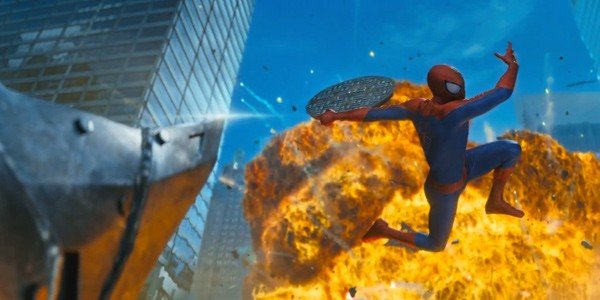
The Amazing Spider-Man
Franchise History: The Spider-Man films have collected $3.2 billion in theatrical gross for Sony, topping out with the $890 million global take of Spider-Man 3.
Last Time Out: The Amazing Spider-Man broke free from the continuity of the previous films to gross $752 million in a competitive summer. That's a monster result for any sequel, but it was actually the lowest global number for any of the Spidey pictures. That number is complicated not only by a five year gap between Spider-Man entries, but also the first-time addition of 3D and it's accompanying surcharge.
Current Entry: The Amazing Spider-Man had to cope with negative associations to the earlier films, a generic villain in The Lizard, and an unfamiliar collection of acting talent. Now that the new cast has been established, the ceiling is possibly higher this time around. The WB's Batman Begins also launched following a successful-but-derided entry (Batman & Robin), and it's grosses were soft. But follow-up The Dark Knight went supernova, erasing all memories of Bat-nipples and neon yellow. Sony's hoping for a similar effect in loading the new picture with villains, particularly A-List star Jamie Foxx as Electro. And while The Amazing Spider-Man had a mid-summer launch, The Amazing Spider-Man 2 is owner of the year's best release date, the first weekend of May. While the film's box office is uncertain, it's guaranteed to register a massive first weekend gross.
Long-Term Prognosis: Sony's expectations for this Spidey are far more ambitious than the plans for the last one: The Amazing Spider-Man 2 leads into a third film already slated for 2016. Sony also has a fourth entry lined up without director Marc Webb, though that might morph into planned spinoff films featuring Spidey villains Venom and The Sinister Six. Directors seem to be aboard both Venom (Alex Kurtzman) and Sinister Six (Drew Goddard), so everyone is waiting on The Amazing Spider-Man 2.
However, if this second installment is soft (think: under $500 million worldwide), it could jeopardize this franchise. If fans respond mildly to the new adventure, the safe bet is that these spinoff films occur sooner rather than later, giving Spider-Man a brief respite from the limelight while still keeping him in circulation. Scuttling the pictures, or moving back release dates, doesn't seem to be a part of Sony's agenda at all: after all, they want a Spider-Man movie every year, whether audiences do or not.
Trending Down: The numbers suggest The Amazing Spider-Man was ultimately not nearly as beloved as those earlier films. The last movie is perceived to have been a smash hit simply because of the audience's residual love of the character, and now that they've gotten acclimated to the new series, the second film isn't tracking all that high for a superhero film. There are four films depending on the success of The Amazing Spider-Man 2, but it's not entirely clear the studio focused their efforts on this film, which has had a cacophonous ad campaign that obscures a story (and the central Peter Parker/Gwen Stacy romance) in favor of context-less action. The May release suggests the big opening will be there. Beyond that, we'll see if word-of-mouth distinguishes this from the other films.
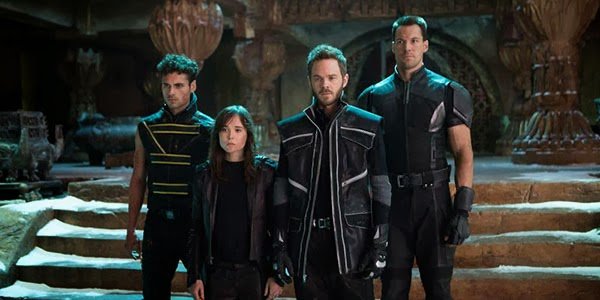
X-Men
Franchise History: Since 2000, the X-Men pictures have grossed $2.3 billion for Fox, or $1.5 billion if you don't count the separate Wolverine films. The highest grossing film in the series is X-Men: The Last Stand, which collected $459 million in global receipts in 2006.
Last Time Out: While Fox debuted The Wolverine last year, the more relevant recent picture in the series is 2011's X-Men: First Class, which landed at $353 million worldwide.
Current Entry: The best comparison for this year's X-Men: Days Of Future Past isn't a superhero film at all: Universal experimented with the Fast And Furious films before realizing the original stars were the draw all along, reuniting them for Fast And Furious. That fourth film collected the biggest opening in the series to that point, turning a hit series into a genuine phenomenon. 2015's seventh Fast And The Furious is a serious threat to approach a billion dollars.
Days Of Future Past takes the same approach, teaming the newer characters in this franchise with original lynchpins Hugh Jackman, Patrick Stewart and Ian McKellen. The effort is thorough: even minor characters like Rogue, Colossus and Beast return for this entry, teaming with the group introduced in First Class. Fan anticipation is high, even if the particulars of the core time travel story are not being clearly emphasized by the ad campaign. The series hasn't been able to regain momentum from The Last Stand. Matthew Vaughn's X-Men: First Class grossed more than $100 million less than The Last Stand, and last year The Wolverine, the first 3D X-film, rang up the lowest domestic take of all of the films. But there's a very good chance moviegoers who have caught the original films on cable for the last decade will turn this into a sizable hit.
Long-Term Prognosis: Wolverine is the series' most marketable character, and he's front-and-center for Days Of Future Past. But it's pretty gutsy to sideline him for 2016's X-Men: Apocalypse, a direct sequel to this film. With director Bryan Singer on board both Days Of Future Past and Apocalypse, it seems like an emphasis is being placed on establishing a solid, coherent mythology for these films after an abrupt shift from X2: X-Men United to the Singer-less X-Men: The Last Stand.
A steady outlook will help Fox build beyond Apocalypse: in addition to a new Wolverine they are mulling an X-Force spinoff film, and separate entries for characters like Mystique, Gambit and Deadpool. Days Of Future Past is rumored to be the second most expensive film in history: if it can't gross half-a-billion worldwide, this series might have to think smaller, since it can't be cheap to wrangle a cast this big in an effects-heavy action film.
Trending Up: The X-series hasn't necessarily recovered from The Last Stand, but the films have a tremendous goodwill with audiences. Last year's numbers for The Wolverine, and the accompanying enthusiasm for a post-credits sequence teasing Days Of Future Past, suggests expectations that wouldn't be present had Fox simply moved ahead with a direct sequel to First Class.
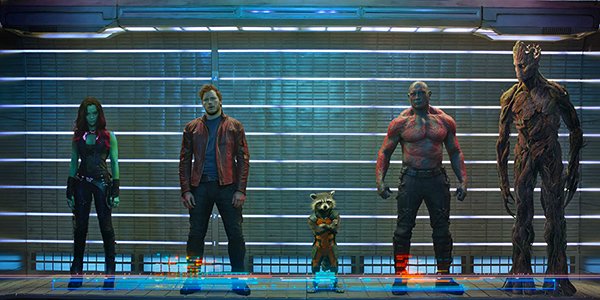
Marvel
Franchise History: The independent Marvel slate, which has consisted of films distributed by Paramount and then Disney since 2008, have earned a staggering $5.7 billion. That's not counting the still-in-release Captain America: The Winter Soldier, expected to add an additional $700 million to that tally. The highest-grossing of the group is Joss Whedon's The Avengers, which collected more than $1.5 billion in 2012.
Current Entry: While casual fans were only mildly familiar with characters like Thor, few, if any, know about this summer's Guardians of the Galaxy. The comic franchise itself is only intermittently published by Marvel, never one of their bigger sellers. In the current comic run, gearing up to prepare fans for the film, they've been forced to team the group up with the likes of Iron Man and the X-Men in order to boost their minimal profile. Don't read comic books? Your ignorance in this case shouldn't give you shame: Guardians Of The Galaxy are a fairly obscure band of Marvel heroes.
The good news is, no one cares. Marvel head Kevin Feige has been confident enough to let it slip that this film doesn't tie into other Marvel efforts quite as much and has more crossover with a third Avengers film that currently only exists hypothetically. If the film takes off, Marvel's vast intergalactic roster suggests the Guardians could go on several interstellar escapades. But if the film doesn't connect, Marvel can continue their multi-series ambitions with four currently established ongoing franchises.
Long-Term Prognosis: After next year's guaranteed hit Avengers: Age Of Ultron, Marvel will launch its sixth potential franchise (seven if you count the Hulk movies) with Ant-Man. They have the least to risk out of all comic book moviemakers, and Marvel's partnership with Disney has turned these movies from megahits into bonafide events. If Guardians or Ant-Man misfire, they've sandwiched another Avengers film between them, one that will re-establish Marvel's key heroes as tentpole attractions and perhaps (re)introduce a new blockbuster attraction – maybe Hulk gets another spin, or Black Widow could even get some shine.
Trending Up: Marvel could release just about anything they want right now. If Guardians and/or Ant-Man flop, they still have a number of other franchises to pursue. What's best is that, with the use of continuity, Marvel can revisit the events and significance of one film with a later entry, giving these pictures a catalog life they wouldn't normally have. Guardians Of The Galaxy is said to heavily spotlight villain Thanos. When Thanos takes center stage in Avengers 3, what's the likelihood that casual fans double back to revisit Guardians on DVD years later to catch anything they missed?
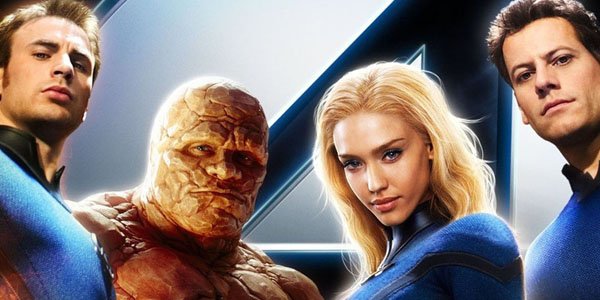
Fantastic Four
Franchise History: There have been two Fantastic Four films, amassing $619 million in global ticket sales.
Last Time Out: Fantastic Four: Rise Of The Silver Surfer saw a downtrend in grosses from the first movie with only $289 million in receipts, putting the series on temporary hiatus.
Current Entry: Fox is undeterred with their latest incarnation of the series, confidently pushing an initial March release date into the heart of summer 2015. Director Josh Trank is tasked with bringing an edge to the material, one purposely eschewed by the PG-rated originals. The last film was seven years ago – they should at least be able to retain the younger spectrum of that audience, while adding new fans who appreciate a fresh take on the characters.
As mentioned before, however, reboots are tough, and following an installment that wasn't well-liked initially results in smaller grosses right out of the gate. Fantastic Four isn't the most beloved franchise, so their best bet might be to distance themselves completely from the first two films, as well as any comics version of the character themselves: perhaps the rumored radical changes are clever commercial ones. The marketplace has changed since that last film, and overseas 3D trends suggest this film could gross at the very least $400 million globally. Is that going to be enough for this new group? However much they spend on the budget could be key.
Long-Term Prognosis: Fox has scheduled a follow-up slated for 2017, which shows a tremendous amount of confidence in this group. Comic fans have found it worth speculating, however, that Fox's summer 2018 release date, for an as-yet-untitled mystery movie, is also a Fantastic Four property, with some suggesting it's a team-up with fellow Fox franchise X-Men. That could be the case of a bigger brand rescuing a smaller one: if next summer's offering doesn't score major numbers, could they reveal that team-up in 2017's Fantastic Four II instead?
Trending Down The Fantastic Four have an uphill climb: the first film in 2005 isn't exactly a genre classic, and the fans showed their displeasure when Rise Of The Silver Surfer grossed even less despite, by most metrics, being a more enjoyable film. Neither are favorites, and Josh Trank has made only one movie – hardly enough to build a rep with fans. Casting unknowns will bring fresh blood to this series, but they are still unknowns: the ad campaign for The Fantastic Four has some heavy lifting to do.
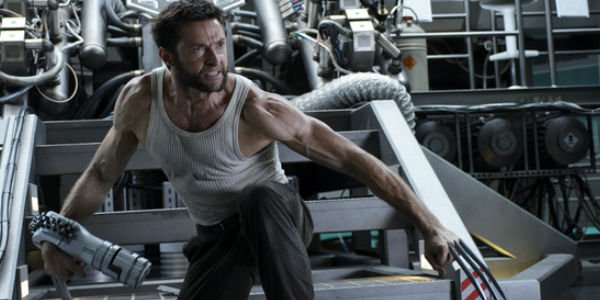
Wolverine
Franchise History: While the character debuted in X-Men and has been a fixture in that series since the beginning, the character has only been featured in two standalone films, which have tallied $787 million in theatrical grosses. Basically, two Wolverine films equal one Spider-Man.
Last Time Out: The Wolverine was a mixed bag for Fox. Despite being the first 3D offering in the X-Men series, it registered the lowest domestic numbers in the franchise. But it was also one of the cheapest, far less expensive than X-Men Origins: Wolverine, and worldwide the $414 million tally was formidable.
Current Entry: March 2017 sees the release of a third Wolverine picture from the creative team that produced the second. Aside from that, little is known about the movie, which will take place after X-Men: Days Of Future Past (the 80's-set X-Men Apocalypse will allegedly not involve Wolverine). Fox is banking on the strong reviews and $414 million tally of The Wolverine to keep the character going, though they'll need a fresh hook to keep stateside audiences interested.
Long-Term Prognosis: If it's true and Jackman does not show up in X-Men: Apocalypse, a Wolverine 3 would be the eighth film to feature the actor as the adamantium-bladed hero. It stands to reason that perhaps Jackman, nearing his 50's, will not be able to play an ageless character any longer. But he's been the good soldier, and the movies are still popular enough to keep it going. Rumors suggest that Fox's 2018 mystery project could actually be a team movie featuring Wolverine, a film that introduces new characters in support of Jackman. Ultimately that may be the best idea for the actor and the character: in the comics, his ubiquity has eventually led to him becoming the unlikely leader of a new group of younger X-Men. Could that happen on screen?
Trending Down: Jackman has played this character seven times now in a 14 year span. The last time, the first with 3D prices, was the lowest result domestically, and the inflated worldwide numbers likely have to do with a still-growing global marketplace and the picture's Japanese location. Jackman can't support these films any longer, and while Mangold and Jackman produced a well-liked film last time around, there's only so much the audience can see of this guy before they check out. The next film has to have a killer hook – maybe a team aspect with another big star – in order to keep Wolverine in circulation.
